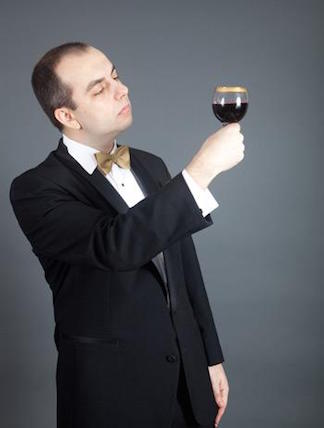Let’s Get Real: Three Cheers For Wine Snobs!
 I get it. I understand. No one ever went broke dumbing something down. But that doesn’t mean I have to approve of it or even agree with it. And I’m particularly bored with folks who purport to be experts in wine who claim to be giving the gift of “debunking wine snobbery”.
I get it. I understand. No one ever went broke dumbing something down. But that doesn’t mean I have to approve of it or even agree with it. And I’m particularly bored with folks who purport to be experts in wine who claim to be giving the gift of “debunking wine snobbery”.
I was reminded of just how common and calculatingly high-minded this tactic is when I read the press release from Peter Lunzer of Lunzer Wine Events announcing his “campaign” to “Get Real With Wine: Debunking Wine Snobbery”. The press release explains Peter’s “Get Real With Wine” mission this way:
“Peter thinks that the time has come for de-bunking the myths and finding a common ground from which consumers can derive genuine value from a critics remarks rather than being left pondering when if ever they had sniffed and logged the smell of Bergamot or the flowers of a Seville Orange tree.”
Sometimes a wine does have aromas of Bergamot as well as Seville Orange Trees.
But the fact is that Peter’s claim that “the wine industry is still far too full of snobbery and clap trap” just isn’t true. That claim is nothing more than a marketing hook to convince novice wine drinkers to attend his events and convince organizations to book his services.
That vast majority of critics’ reviews utilize descriptors that are entire common and easily understood by novice and expert wine drinker alike. And if a wine critic uses a term like Bergamot or Seville Orange Trees it’s not snobbery, it’s precision.
There is now and always has been a strain of anti-intellectualism that runs through the Anglo-American culture. It’s a form of anti-elitism, class conflict and, well, self-consciousness, that is taken out on wine as well as other seemingly high brow pursuits.
The irony is that those people attracted to Peter’s “Get Real” wine classes and who then find themselves fascinated by wine will one day find that the common descriptive terms he champions are too feeble to communicate what they find in the wines they love and they will begin using those “snobby” terms he derides. When that’s the result of his efforts to capitalize on anti-intellectualism, I’ll say more power to him.
In the mean time, I’ll encourage all those who enjoy wine beyond its ability to wash down food and cause inebriation to embrace the intellectual aspects of the beverage, to pursue any multi-syllabic word they want to describe it and to brush off those who would call them snobs.

One shouldn’t mistake intellectualism for snobbery, as this article seems to do.
There is wine snobbery beyond the use of precise wine terms. It usually manifests itself in the use of terms one doesn’t understand, name-dropping and dumbing down good wines in favour of others – usually more well-known or expensive ones – to try and gain personal status.
As such wine snobbery doesn’t do anything for the democratisation of the pleasures of wine appreciation and it deserves to be debunked. Don’t you think?
Well said Tom. I read Peter Lunzer’s screed earlier and came to the same conclusions. I was going to reply to Lunzer, but you said it all.
I would also add that the very terms that Lunzer seems to find objectionable prove to be valuable when during a class on wine tasting, I use a term that has always clicked with me, to see a nod or smile from a student who finally found the descriptive term they were seeking.
Gerald,
It’s a weird sort of anti-elite snobbery that allows someone to criticize the use of technical jargon, and that’s exactly what it is. That said, the descriptors he cites and their type are in fact rarely used. He’s creating a classic strawman. Good to hear from you.
Tom..